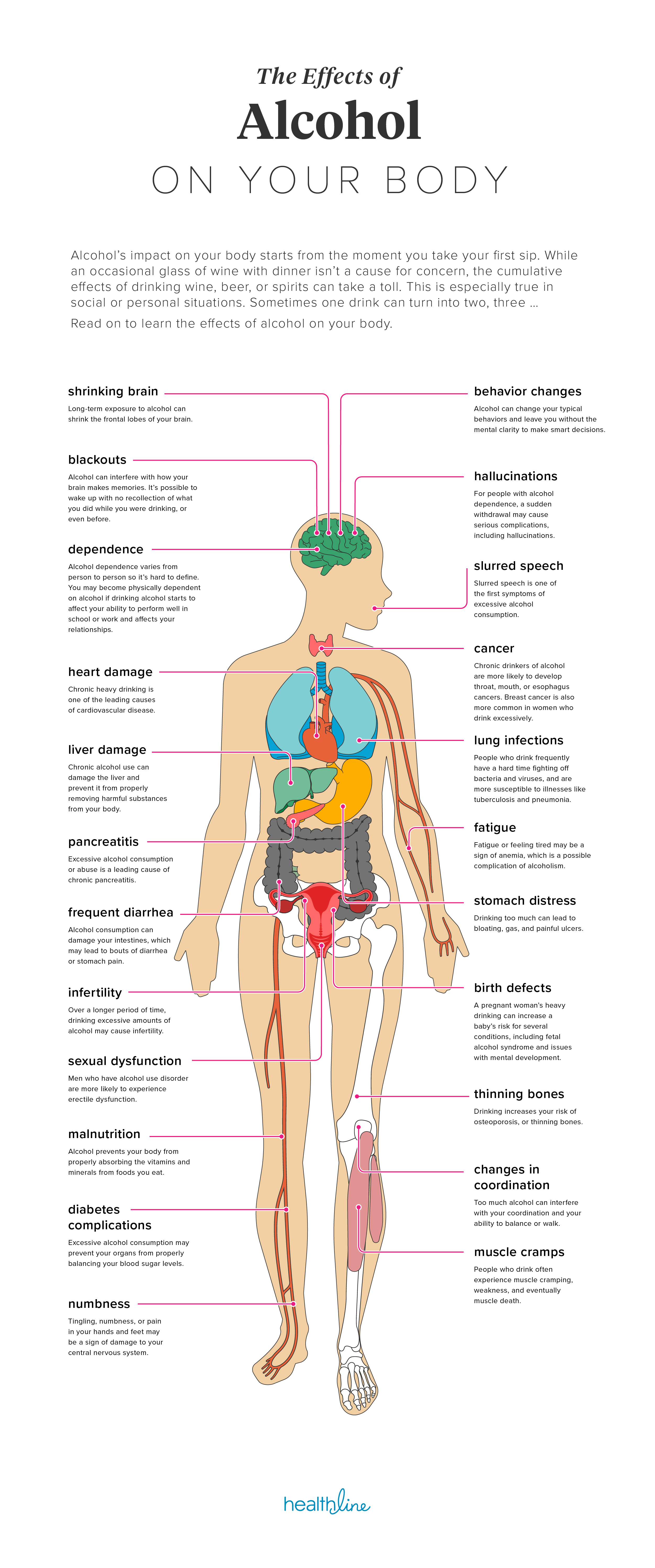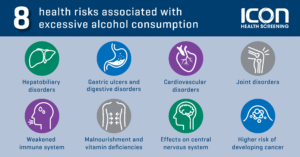Did you know that excessive alcohol intake can have a significant impact on your health? It’s true! From liver damage to an increased risk of certain cancers, alcohol can have detrimental effects on your body. But don’t worry, in this article, you’ll learn more about how excessive alcohol intake can affect your health and what steps you can take to protect yourself. So, if you’re curious to know more about the potential consequences of drinking too much alcohol, keep reading!
In this article, we’ll delve into the various ways that excessive alcohol consumption can impact your health. We’ll discuss the effects it can have on your liver, heart, and brain, as well as the increased risk of developing certain diseases and mental health issues. Whether you’re a social drinker or someone who regularly consumes alcohol, it’s essential to understand the potential risks associated with excessive intake. So, grab a cup of tea (or perhaps a glass of water!) and prepare to gain valuable insight into how excessive alcohol intake can affect your health. Excessive alcohol intake can have a significant impact on your overall health. It can lead to various health complications and negatively affect different parts of your body, including the liver, brain and nervous system, cardiovascular system, gastrointestinal tract, immune system, mental health, risk of addictions and substance abuse, sexual and reproductive health, as well as muscles and bones.

This image is property of static.wixstatic.com.
The Effects on the Liver
Excessive alcohol intake can cause numerous alcohol-related liver diseases, including fatty liver, alcoholic hepatitis, and cirrhosis. Fatty liver occurs when alcohol is metabolized in the liver, leading to the accumulation of fat. This condition can be reversible if you stop drinking alcohol. However, if you continue heavy alcohol consumption, it can progress to alcoholic hepatitis, which is an inflammation of the liver. Alcoholic hepatitis can cause symptoms such as jaundice, fatigue, and abdominal pain. If left untreated, it can progress to cirrhosis.
Cirrhosis is a severe and irreversible condition that develops when liver cells are damaged and replaced by scar tissue. It can lead to liver failure, impaired liver function, and an increased risk of liver cancer. The scar tissue inhibits the liver’s ability to filter toxins and produce proteins, which can result in a wide range of symptoms such as jaundice, easy bruising, fluid retention, and mental confusion.
Impact on the Brain and Nervous System
Excessive alcohol intake can also have detrimental effects on your brain and nervous system. It can cause memory and cognitive decline, impairing your ability to think clearly and remember information. Chronic alcohol abuse can lead to a condition known as Wernicke-Korsakoff syndrome, which is characterized by severe memory loss and cognitive impairments.
Alcohol dependence, commonly referred to as alcoholism, is another consequence of excessive alcohol consumption. The brain becomes dependent on alcohol to function normally, leading to cravings and withdrawal symptoms when alcohol is not consumed. Alcohol dependence can drastically impact your daily life and relationships.
Peripheral neuropathy is another potential consequence of alcohol abuse. It is a condition that damages the nerves in your extremities, leading to numbness, tingling, and muscle weakness in your hands and feet. This condition can be irreversible and significantly impact your mobility and quality of life.
Cardiovascular Effects
Excessive alcohol intake can also have adverse effects on your cardiovascular system. It can raise your blood pressure, increasing the risk of hypertension. High blood pressure can lead to numerous cardiovascular complications, including stroke, heart attack, and heart failure. Alcohol abuse can also cause arrhythmias, which are abnormal heart rhythms that can disrupt the normal pumping of blood. Long-term excessive alcohol consumption can weaken your heart muscles, leading to heart failure.
Gastrointestinal Issues
Your gastrointestinal tract can also be negatively affected by excessive alcohol consumption. Alcohol abuse can lead to pancreatitis, which is inflammation of the pancreas. Pancreatitis can cause severe abdominal pain, nausea, and vomiting. It can also lead to long-term digestive problems.
Gastritis, inflammation of the stomach lining, can also occur with excessive alcohol intake. It can cause stomach pain, nausea, vomiting, and indigestion. Alcohol abuse can also increase the production of stomach acid, leading to acid reflux and heartburn.

This image is property of iconhealthscreening.sg.
Impaired Immune System
Excessive alcohol intake can weaken your immune system, making you more vulnerable to infections. It can impair the ability of your immune system to effectively fight off bacteria, viruses, and other pathogens. This can lead to an increased risk of developing various infections, such as pneumonia, tuberculosis, and urinary tract infections.
Furthermore, alcohol can delay the healing process and worsen the symptoms of existing conditions. It can hinder the body’s ability to repair itself, leading to slower recovery times and increased susceptibility to complications.
Effects on Mental Health
Excessive alcohol consumption is closely linked to mental health disorders. It increases the risk of developing depression, anxiety disorders, and suicidal thoughts. Alcohol is a depressant and can exacerbate symptoms of depression. It can also contribute to the development of anxiety disorders, causing feelings of uneasiness, fear, and panic.
Alcohol abuse is often associated with an increased risk of suicidal thoughts and behaviors. Excessive alcohol consumption can impair judgment, lower inhibitions, and exacerbate negative emotions, making individuals more likely to engage in risky behaviors and have suicidal ideations.

This image is property of www.healthline.com.
Risk of Addictions and Substance Abuse
Excessive alcohol intake can increase the risk of developing addictions and engaging in substance abuse. Individuals who consume alcohol excessively are more likely to develop a dual diagnosis, meaning they have both a substance abuse disorder and a mental health disorder. This complicates treatment and recovery and requires a comprehensive approach to address both issues simultaneously.
Polydrug use, or the use of multiple substances, is also common among individuals with alcohol abuse problems. The consumption of alcohol alongside other substances, such as illicit drugs or prescription medications, can significantly increase the risk of negative health consequences and overdose.
Sexual and Reproductive Health Complications
Excessive alcohol consumption can have detrimental effects on sexual and reproductive health. In men, it can cause infertility and erectile dysfunction. Alcohol disrupts the hormonal balance in the body and can lower testosterone levels, leading to reproductive issues and sexual dysfunction. In women, excessive alcohol intake can cause menstrual irregularities, including missed periods or changes in the menstrual cycle.

This image is property of mountainside.com.
Degenerative Effects on Muscles and Bones
Alcohol abuse can have degenerative effects on muscles and bones. Excessive consumption of alcohol can lead to loss of muscle mass, weakness, and decreased physical performance. It can also contribute to the development of osteoporosis, a condition characterized by weakened bones and an increased risk of fractures.
Conclusion
Excessive alcohol intake can have far-reaching consequences on your health. It can damage your liver, impair your brain and nervous system, negatively impact your cardiovascular system, cause gastrointestinal problems, weaken your immune system, affect your mental health, increase the risk of addictions and substance abuse, create sexual and reproductive health complications, and lead to degenerative effects on your muscles and bones. It is important to be mindful of your alcohol consumption and seek help if you or someone you know is struggling with alcohol abuse. Take care of your health and make choices that support your overall well-being.

This image is property of www.starhealth.in.

